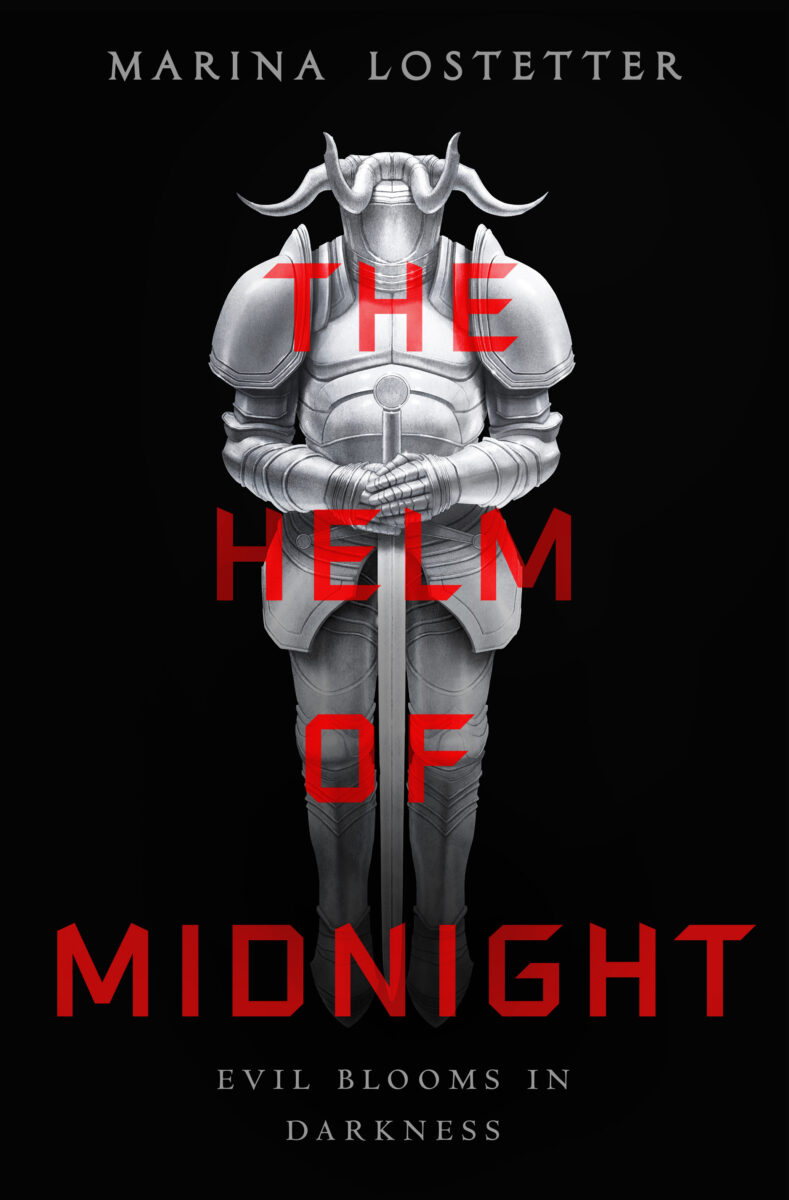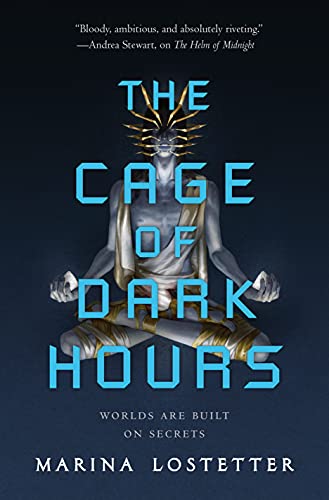I’m late to the party on The Helm of Midnight, published last year alongside so many other pandemic-delayed books. But please don’t let my tardiness imply anything negative about Marina Lostetter’s dark fantasy debut, a sleek mystery that rushes through a wildly inventive setting at a breathless—but remarkably sustained—pace.
The Helm of Midnight could have been a straightforward fantasy-tinged episode of CSI, which would have been fine, but Lostetter goes so hard on worldbuilding. I was deeply impressed by her commitment to exploring every natural extension and consequence of the system she set up, from religious to economic to medical. Though there are certainly strong influences from Gaslamp settings in terms of technology, this is no thin reskinning of Victorian-era London. This is a wild new world, full of innovative monsters, fascinating politics, and truly original magic. Bottled time! Enchanted death masks! Emotionally manipulative jewelry! Just one of these elements would have been a good basis for another author’s book, but Lostetter just never stops.

The relentless creativity is evident in the plot, too. This is a heist inside a gritty serial killer mystery enfolding an emotional sibling drama wrapped up in a society-altering investigation. There are multiple POVs, several unfolding romances, a plethora of secondary characters (and suspects), and a million cool little details of technology and culture. I particularly appreciated the ubiquity of non-cis pronoun use, although I would have liked to see a few more prominent nonbinary characters. However, the fact that many of the gods themselves are agender, intersex, and nonbinary (there are only two cis deities out of five total) is marvelously welcome.
De-Krona Hirvath is our entryway to this multilayered world, and her cool, no-nonsense badassery makes everything that much more exciting. She’s just the right blend of tough and vulnerable to be easy to root for, and Lostetter wisely resists the urge to make her quippy. She’s smart in a deep-thinking way, not wasting herself on pointless witticisms when she can spend her energy on far more productive tasks. Besides, there’s nothing funny about losing a killer’s death mask—a mask that contains all the skill to start his reign of terror all over again.
Fans of Hannibal (the show) will find the killer’s methods darkly appealing, and may also enjoy the twisted relationship spurring on such evil acts. I was mostly persuaded, and found Fiona wickedly fascinating, but I’m not sure the darkest turns to murder and mayhem were given enough room to breathe. I could see how, in theory, certain characters would be driven to certain acts; they made sense on paper. But I didn’t always feel it. I also wasn’t sure about the choices some of the villains made, especially at the end. Lostetter seemed more enamored of her set piece—a dramatic setting for a final confrontation, to be sure—than of her characters, forcing them into a scenario instead of allowing for more realistic solutions. It was hard to accept that even a deranged egomaniac would risk a scenario with so much potential for disaster.

Perhaps, though, that’s because Krona is our primary guide to this world. Despite having two other POV characters, it’s Krona’s account that dominates and Krona’s philosophy of life that seeps into every aspect of the world. She can be a creative thinker, but she’s ultimately Lawful Good. She would never cross certain moral lines or take unnecessary risks with others’ lives. Her attitude informs our reactions, as does the other POV characters’ essential goodheartedness. Even some of the most seemingly evil characters have altruistic and surprisingly lucid motivations.
This lucidity—let’s not call it out-and-out sanity—is interesting because authors so often rely on the “crazy killer” trope. Lostetter refuses to take the easy way out with that, instead insisting on a more nuanced understanding of mental health. Krona tries to understand the mind of the killer she’s chasing, and in turn she’s helped by a doctor pioneering an alternate-universe but still-recognizable form of Cognitive Behavioral Therapy. It’s a narrative move that doesn’t always work perfectly, since some characters make logical leaps that don’t stick the landing, but it’s still very effective overall. And besides, I always prefer an interesting risk to a safe cliché.
The final risk Lostetter took was to leave many ends untied. The climax resolves the most pressing threats to its characters, but refuses to answer larger questions. While always mildly frustrating, this was ultimately the right choice: there are too many threads to resolve in a single battle or confrontation, and some of them do need the expansiveness of a full series to really develop. Speaking of which, The Cage of Dark Hours is imminent, so now would be a perfect time to catch up on The Helm of Midnight. You’ll be able to dive right back into Krona’s world in February, so what are you waiting for?
The Cage of Dark Hours will be released on February 14, 2023.
